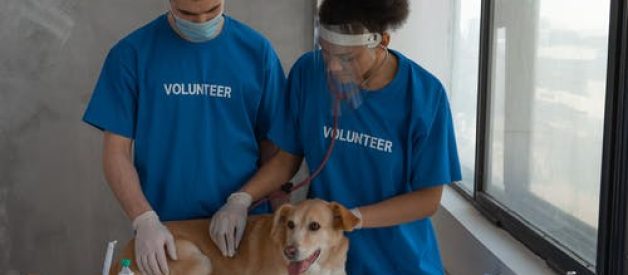Exotic animals are a joy to own, but with such unique pets come unique responsibilities. Recognizing the exciting yet potentially daunting commitment you made when you chose your exotic pal, you want to do what’s best for your creature companion. So, do you know how to spot the warning signs of a health crisis in your exotic animal? Being familiar with these signs can make all the difference for your pet. This article will cover everything from common warning signs for various exotic animals to the importance of early detection, preventative care, and working with specialized veterinarians. So let’s get started.
Common Warning Signs of a Health Crisis in Exotic Animals
While the specific symptoms can vary depending on your exotic pet’s species, here are some general warning signs you should be aware of:
- Changes in behavior or personality: Is your usually cheery bird suddenly grumpy, or did your normally nocturnal gecko start basking during the day? Trust your pet-parent instincts – if something feels off, it probably is.
- Unusual eating and drinking habits: Appetite and hydration changes can be indicators of several potential problems, so if your pet is suddenly devouring more or less than usual, it may be cause for concern.
- Weight loss or gain: Rapid changes in weight can signal possible health issues, and monitoring your pet’s weight is crucial for their overall well-being.
- Changes in stool or urine: Bad smells, abnormal colors, or irregular bowel movements can all point to potential digestive and health issues.
- Difficulty breathing or unexplained coughing: Respiratory distress can be a severe problem for many exotic pets, so keep an ear out for any odd noises or labored breathing.
- Lethargy or unusual sleeping patterns: If your pet isn’t as active as they typically are or seems to be sleeping irregularly, they might be trying to tell you that something’s wrong.
Specific Warning Signs for Different Exotic Pets
- Birds – Beak, feather, or skin abnormalities – Wing drooping or balance issues
- Reptiles and Amphibians – Shedding problems – Bumps, cuts, or abrasions on skin – Swelling or discoloration
- Small Mammals (hedgehogs, ferrets, sugar gliders, etc.) – Hair loss or skin issues – Discharge from eyes or nose – Dental or mouth issues
Unique Health Needs of Exotic Pets
Exotic pets require species-specific care and attention to ensure they are appropriately nurtured. If you don’t pay close attention to their unique needs, like providing them with the proper habitat, diet, and environmental conditions, they could suffer from a range of health issues. An important aspect of your exotic pet’s well-being is ensuring they receive proper exotic vet care. With specialized veterinary care, these unique needs can be addressed appropriately, ensuring your pet remains healthy, happy, and vibrant.
Preventative Care for Exotic Pets
It’s not only important to notice when something is amiss but also to take preventative measures to keep your pet in the best possible shape. To this end, you should:
- Schedule regular health check-ups
- Provide proper nutrition and diet
- Prioritize mental and environmental stimulation
- Acknowledge the benefits of early disease detection
When to Take Your Exotic Pet to the Vet
Knowing when it’s time to take your exotic pet to the vet is vital. However, it’s just as important to establish a relationship with a specialized exotic animal veterinarian. This process includes selecting the right vet and having their contact information handy for emergencies. During an emergency vet in Oak Grove situation, it’s essential to act quickly and seek professional assistance from a qualified veterinarian. Such situations could include sudden breathing difficulties, visible injuries or trauma, and extreme lethargy or unresponsiveness.
The Role of Veterinarians in Exotic Animal Health
Veterinarians specializing in exotic animal care are not only knowledgeable about the unique health needs of your pet, but they also provide specialized treatment that general vets may not have. In some cases, they may even have advanced diagnostic facilities about their hospital, like a pet vet lab that can offer crucial insights into your pet’s health. By working closely with a specialized exotic pet veterinarian, you will gain a wealth of knowledge about how to best care for your exotic pet, ensuring they enjoy a long, happy, and healthy life.
Conclusion
When it comes to your exotic pet’s health, it’s essential to be proactive, observant, and informed. By learning to spot the warning signs of a health crisis, providing proper preventative care, and developing a healthy relationship with a specialized exotic pet veterinarian, you can help ensure your pet lives its best life. Remember, early detection and appropriate treatment are keys to ensuring your exotic animal remains a delightful and healthy companion for years to come.





